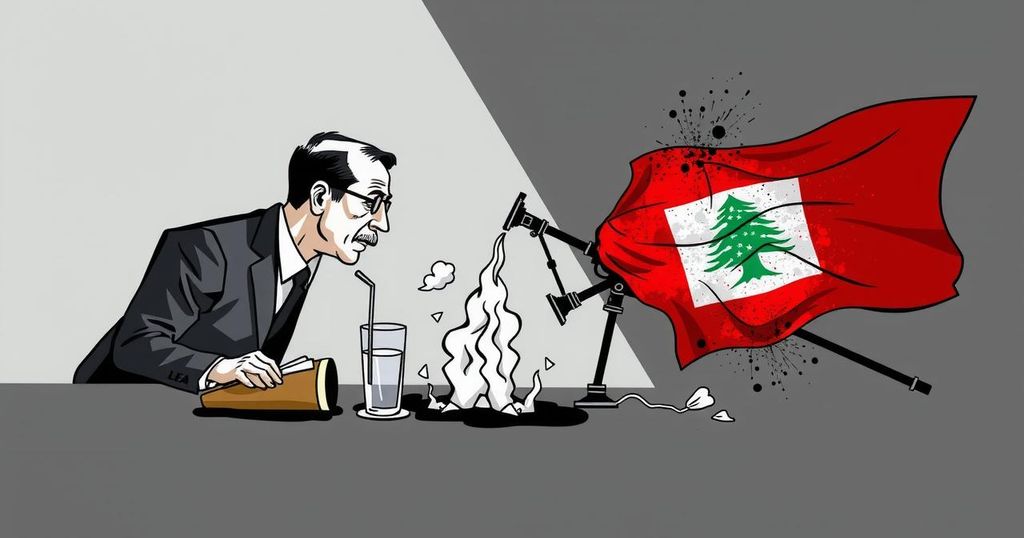The Israel-Lebanon ceasefire allows for a phased withdrawal of the Israeli army and military repositioning of Hezbollah under a 60-day framework. This event comes amidst heightened tensions and internal pressures on both sides, particularly for Israel’s leadership, as they navigate international relations and domestic opposition, while Lebanon seeks to stabilize amidst historical political turmoil.
The newly established ceasefire between Israel and Lebanon is set for a 60-day period in which the Israeli army will retract from southern Lebanon, while the Lebanese army will advance its position at the border. Concurrently, Hezbollah is expected to reposition its heavy weaponry north of the Litani River. The Israel Defense Forces dramatically escalated attacks on mixed civilian and military regions in southern Lebanon as the ceasefire commenced, with the ultimate aim of establishing a favorable negotiating position and maintaining a military presence after the ceasefire’s inception. Given the U.S. threat to withdraw its veto support, Prime Minister Benjamin Netanyahu is compelled to act, as he faces pressure from various factions that perceive the ceasefire as a concession to Hezbollah, enabling its restructuring.
Lebanon has long been a battleground for Iranian and Israeli interests, especially since the mid-1980s, with Hezbollah serving as a significant player supported by Iran’s considerable investment aimed at fortifying its military presence and political influence in the region. The recent escalations began with Hezbollah’s declaration of war against Israeli forces in support of Gaza, leading to unprecedented Israeli airstrikes that inflicted substantial humanitarian and infrastructural damage upon Lebanon, intensifying internal strife. In this fraught environment, the ceasefire presents a unique opportunity for Lebanon to restore political stability while navigating the complexities of Hezbollah’s entrenched power and Iran’s influence over Lebanese politics.
The ceasefire provides a pivotal moment for Lebanon to either stabilize its political landscape or descend into further conflict, particularly given Hezbollah’s capacity to regroup. The upcoming months will be critical as Lebanon seeks to address its internal divisions while negotiating with greater diplomatic pressures from international actors. The potential restructuring of military influence and political frameworks is paramount for achieving lasting peace; however, this effort will necessitate inclusive dialogue among all Lebanese factions to avoid repeating the mistakes of the past.
Original Source: www.dailynewsegypt.com






